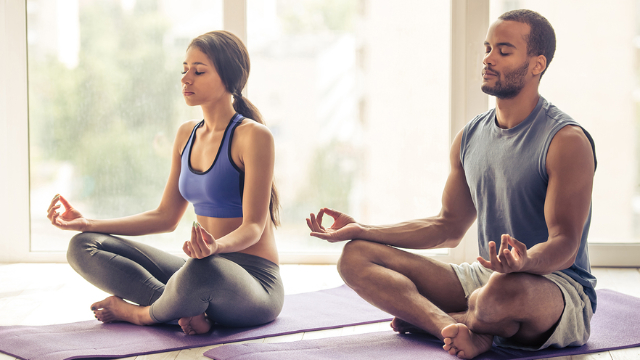News
Try several remedies for back pain and discover which work for you

For many individuals in our fast-paced society, every day is often seen as an opportunity to “get things done” in the most efficient and productive manner possible. But, there is a world of possible obstacles that can derail your daily plans, a painful condition like back pain can often be your biggest challenge.
Back pain is generally considered to be the most common condition that causes disability in the world. The back muscles and spine support much of the body’s weight, and we use these muscles in a significant number of our everyday movements like sitting, standing, and walking. So it’s not hard to see that when back pain arises, it can truly interfere with an individual’s productivity and ability to perform their best at work, and in daily life.
As a result, the response to this interference is usually the same for most people: how can I get rid of this pain quickly so I can return to functioning normally? Unfortunately, there is an abundance of options, but no single cure—or cures—that will work for everyone. What completely eliminated your friend’s back pain may not do a thing for you, and vice versa. This is why the smartest approach you can take is a process of trial and error, giving many different remedies a shot and seeing which ones lead to improvements. In most cases, it won’t be just one change, but rather a combination of several that are right for you. Below are some of the most effective home remedies that are worth trying.
Home remedies that can help alleviate your back pain
- Ice/heat therapy: ice and heat are two of the most commonly recommended remedies for pain relief, and the reason is that they often work; try both for 20-30-minute intervals every few hours
- Ice therapy reduces inflammation, which is often a culprit in any type of back pain, and it acts as a local anesthetic by slowing down nerve impulses; icing is best within the first 2-3 days after pain arises
- Heat therapy stimulates blood flow, which brings healing nutrients to the painful areas of the back, and it inhibits pain messages being sent to the brain; use heat about 3 days after the pain starts, and try several methods like a hot compress, heating pad, or hot shower
- Sleep: both how you sleep and how much you sleep can each have a big impact on your back pain, so it’s best to address both of them head-on
- Change your sleeping position: sleeping flat on your stomach or back should generally be avoided, while some of the better positions for individuals with back pain are on your side with a pillow between your knees or in the fetal position, on your stomach with a pillow under your abdomen, or on your back with a pillow under your knees
- Get more sleep: about 2/3 of people with chronic (long-lasting) back pain also suffer from some type of sleep disorder, and bad sleep can make back problems worse, so try to get the recommended 7-8 hours every night
- Exercise: while it may seem logical to avoid movement when you have back pain, lack of physical activity can actually make your pain worse
- General exercise: try to get at least 150 minutes of moderate-intensity exercise (like brisk walking) or 75 minutes of vigorous-intensity exercise (like jogging) every week
- Core strengthening exercises: core strength can have a big influence on back pain, and these muscles are often not worked on in a normal day, which is why they should be specifically focused on; try these ab exercises
- Hamstring stretches: if the hamstring muscles in the back of the thigh are too tight, the lower back and hip joints can get more stressed, which leads to more back pain; try stretching them out with these exercises
- Additional strengthening exercises for the lower back
Also remember that many of the same tactics to prevent back pain also apply to treating it, so if you’re interested in learning more ways to ease your back pain, read our last newsletter that covers some smart back pain prevention strategies. Click here for our article on the "Best ways to reduce your chances of developing back pain."
Disclaimer:
The information in the articles, posts, and newsfeed is intended for informational and educational purposes only and in no way should be taken to be the provision or practice of physical therapy, medical, or professional healthcare advice or services. The information should not be considered complete or exhaustive and should not be used for diagnostic or treatment purposes without first consulting with your physical therapist, occupational therapist, physician or other healthcare provider. The owners of this website accept no responsibility for the misuse of information contained within this website.
